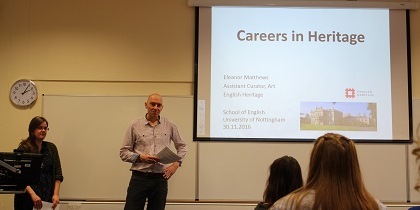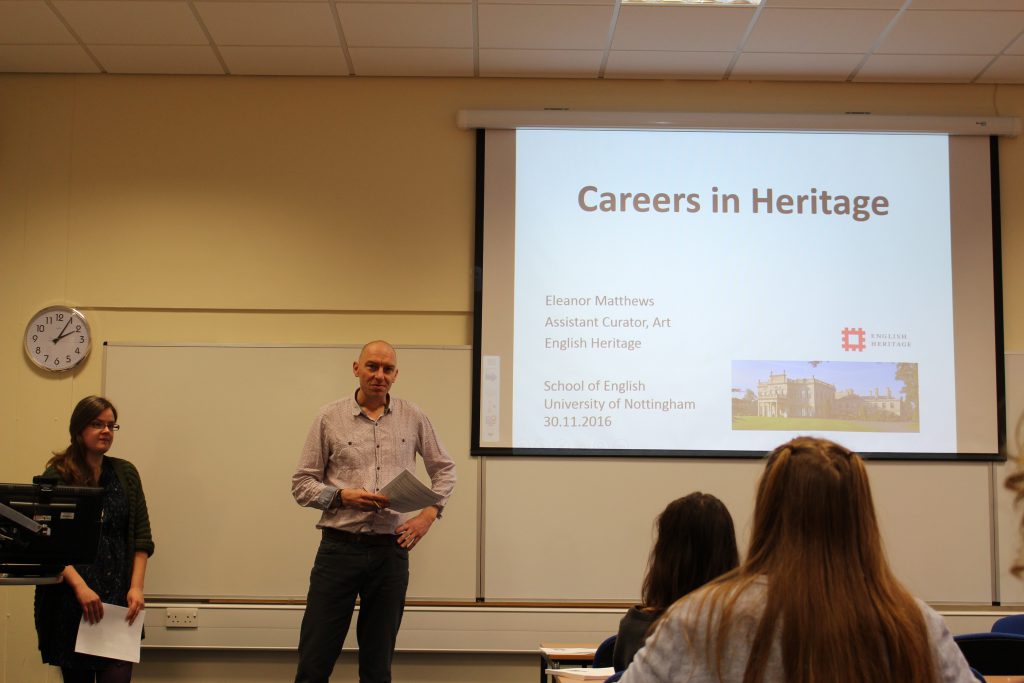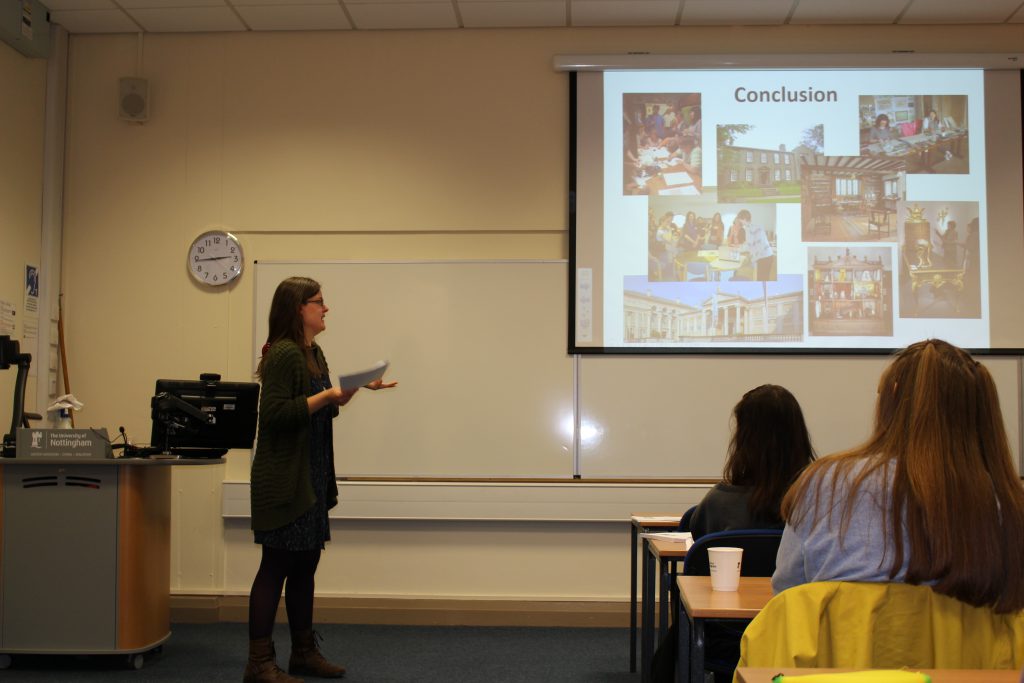
December 9, 2016, by Words on Words
Collecting, Curating and Careers
This blog post was written by English student, Amy Wilcockson.
After stumbling upon a placement in a museum in second year, which I thoroughly enjoyed, a career in heritage has looked increasingly likely for me. But I’ve never really known how to get into this extremely competitive field from a fresh-from-uni point of view. Enter Eleanor Matthews, ex-University of Nottingham English student, and the current Assistant Curator of Art for the Northern Territories at English Heritage. Last week, students in the School of English, myself included, were treated to a careers talk with Eleanor. During the hour, Eleanor showed us the route she took into the prestigious job she’s working in now, gave us advice for getting a job, and highlighted how studying English is beneficial in the heritage profession.
After completing her undergraduate English degree at Nottingham, Eleanor went on to do an MA in Middle English Literature at Oxford. She told us that after completing this, she considered a PhD, but ultimately wanted to work in a sector where she could use her knowledge of literature, but that wasn’t exclusively academia. Her first steps into the world of heritage came after successfully securing an internship at the Wordsworth Trust, where she developed a wide range of skills and took part in many projects, including community outreach and education workshops. It was inspiring to see that this internship provided the basis for her later jobs, and even more so to know that the internship with the Wordsworth Trust still runs today! Application here I come!
After working in Assistant roles on a temporary basis, where, amongst other things, Eleanor told us, she qualified as a forklift driver (essential life skill right there!), she then applied for a role as Assistant Curator of Art for the Northern Territories at English Heritage. And the rest, as they say, is history. Being an incredibly varied job that includes researching collections, acquiring objects, assisting researchers, and writing academic papers, it is safe to say that for an English student with a passion for the past, Eleanor’s job would be a dream role. I mean, if Eleanor ever wants to step down from her job, I’m right here willing to give it a shot!
So why work in heritage? Eleanor chose this career path as she believes heritage is a bridge between academic knowledge and the wider community. The fact that every day is different, and that you get the chance to handle history on a daily basis, also had a role to play in her decision to pursue a career in heritage. English is a fantastic choice of degree for this career path, as an English student naturally has the subject specialist knowledge, research, presentation, and interpretation skills, as well as the ability to write for different audiences – all skills that are a key part of Eleanor’s and other heritage workers’ jobs.
The most enlightening part of Eleanor’s talk was her advice for getting a job in a museum, gallery, or historic house. She stressed that you need an MA unless you’ve had a lot of practical experience, and you need to be prepared to travel, as jobs are wide-ranging and in a variety of places. She also advised joining a university society, being on a committee, organising events, writing for the university magazine (such as Nottingham’s Impact), and learning how to manage a budget – all key skills for a potential career in heritage.
Most of all, Eleanor stressed a love for the job, and an acquisition of the basic skills needed. Lucky, then, that our English degree gives us all of those skills and more!
Amy Wilcockson



Nice presentation! Good work!